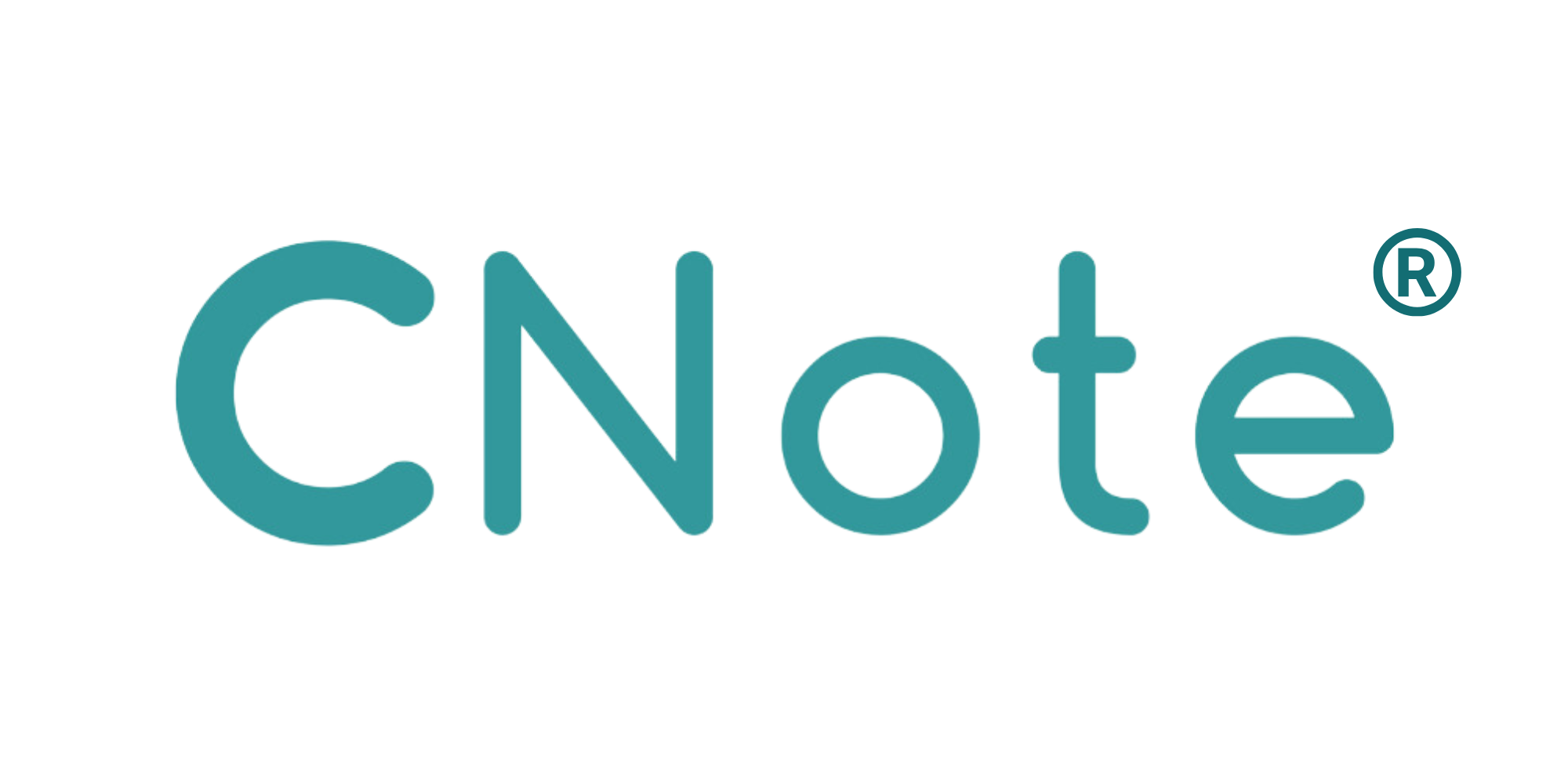What impact investing options are currently available to retail investors?
What is impact investing and how can I participate? These are questions we often hear from individual investors looking to connect their money with meaning.
According to the Global Impact Investing Networking (GIIN), impact investing refers to investments that are “…made into companies, organizations, and funds with the intention to generate social and environmental impact alongside a financial return.” The term was first coined in 2007 at the Rockefeller Foundation’s Bellagio Center, in recognition of the rapid growth of impact investing among retail investors over the years-to-come.

Given that there is a growing demand for readily accessible impact investment options, we’ve decided to compile a list of these that are available to regular investors. We’ll work to regularly update this compilation to cover the most popular and accessible options.
Although some of these companies could be classified as “competitors” of CNote, we are avid supporters of the impact investing movement. We believe that every new dollar committed to companies focused on moving impact investing forward is a win for both CNote and society-at-large. To that end, we hope you will find this guide helpful.
Methodology and Definitions
Since impact investing is a relatively new concept for most, the standards for what is and is not an impact investment can vary. We have compiled a list of companies that we feel have been generally accepted as offering impact investment products that are accessible to investors of all sizes. We believe that these companies fairly represent the current landscape of established retail offerings accessible to investors of any net worth. As a result, products and opportunities that may only be available to foundations, trusts, and high-net-worth investors did not make our list.
We recognize that some equity-focused platforms focus on divestment, wherein companies that do not align with a specific impact approach are excluded from their portfolio of investments. Classic examples include companies that produce weapons, tobacco, and other so-called “sin” stocks. While we acknowledge this kind of socially-conscious investing, we are excited to see many platforms taking a more active approach by allocating capital directly to companies driving a beneficial social impact. After all, we believe impact investing can be so much more than a decision not to invest in a certain class of companies.
For simplicity, we’ve also tried to separate impact investing options into various categories: robo-advisors, fixed income investments, exchange-traded funds (ETFs) and other offerings. Some of these offerings have their own platforms where you can invest directly, like CNote, whilst others are available through brokers, or via direct offerings like Calvert.
Impact Investing Options
Aspiration
Category: Robo-advisor
Doing business in an industry that has traditionally served the wealthiest, Aspiration has made it their mission to “bring the best financial solutions services to everyone.” Aspiration offers a mix of banking and retirement services, links to charitable giving and investment products.
Unlike other platforms, Aspiration allows customers to decide how much to pay towards their monthly fee, “what you think is fair – even if it is zero.” They also incorporate the Aspiration Impact Measurement (AIM) system into their banking which allows you to track your personal ‘People and Planet’ impact as you shop.
- Minimums: $0- 10
- Fee Types: “Pay What is Fair”
- Products: Banking Services, Retirement Services, Professionally Managed Funds
- Returns: Market
Summary: Aspiration largely falls in line with other impact investment options like Swell or OpenInvest. They see themselves as being “radically accessible” and serve a relatively young consumer base. Such accessibility is apparent in the variety of banking services they offer in addition to a dedicated fund.
However, the products they offer, while wide ranging, are ultimately limited. For example, they only offer the option of two investment funds, with only one, their “Redwood Fund,” impact-focused. They do however offer seven charitable causes one can donate to for a tax deduction, but these are not investment products.
Conclusion: Aspiration is a platform that caters to those seeking accessibility and those new to impact investing who may be intimidated by traditional financial products or turned-off by the modus operandi of most large financial institutions. One of Aspiration’s main selling points is their “pay what is fair” fee structure. This flexible fee structure and lack of minimum investment makes it a good option for a potential investor simply looking to get a feel for the investment landscape.
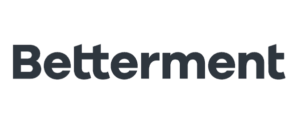
Betterment
Category: Robo-advisor
Betterment, an investment platform founded in 2008, has recently added elements of impact investing to their lineup of products. In 2017 they introduced their “Betterment SRI” (Socially Responsible Investing) portfolio strategy. They seek to blend their SRI approach with the features of their general investing strategy, stating, “We allow socially conscious investors to express that preference in their portfolios without sacrificing the aspects of Betterment’s advice that protect their returns the most: proper diversification, tax optimization, and cost control.”
- Minimum: $0 for their Digital Plan; $100 000 for their Premium Plan
- Fee Types: 0.25% for Digital; 0.4% for Premium
- Products: US Large- Capitalization Stock
- Returns: Market
Summary: Betterment offers tax-loss harvesting and great account minimums, catering to millennials and those with an eye towards retirement. Betterments is still attempting to cohesively integrate their main investment platform with their impact investment platform. One of the main limits to their approach is that, “The ESG scoring approach to SRI does not fully eliminate companies that investors interested in SRI may consider undesirable.”
As an example they do not exclude ETFs, SUSA and DSI, whose stock offerings include investments in, “some energy companies that engage in oil and natural gas exploration, like Hess.” Betterment is not alone in this as most successful ESG investment methods often target large ETFs. Positively, Betterment is honest about its shortcomings, and its options are still relatively conservative.
Conclusion: Betterment is a serviceable investment platform, offering low minimums, great value for retirement accounts, and clear utility for people without a large disposable income. As an impact investment platform, they have an approach that is safe but relatively unambitious.
Capital Impact Partners
Category: CDFI
Capital Impact Partners is a nonprofit CDFI that seeks to leverage its thirty-plus year relationship with traditional financial institutions and other funding sources to support the equitable development of local communities. They achieve this by arranging loans tailored to the needs of their low and middle-income borrowers.
Capital Impact Partners is focused on services like; healthcare, education, affordable housing, and healthy foods for those in underserved communities. Their operating vision is to help create, “a nation of communities of opportunity built on a foundation of equity, inclusiveness, and cooperation.”
- Minimum: $1000
- Fee Types: None
- Products: Fixed Income Notes
- Returns: Fixed Interest Rates according to 1 to 10-year terms
Summary: Capital Impact Partners maintains an on-balance sheet loan portfolio of $311.3 million, over a third of which has been allocated towards education. From there, housing, healthcare, and community development round out their portfolio. They tout that they have served over five million people and have created more than 37,000 jobs.
Those interested in investing through Capital Impact Partners must purchase “Capital Impact Investment Notes” through their brokerage account. This makes the process simple but limits your ability to have any real say in where your money will go. Therefore, investing in Capital Impact Investment Notes for social impact purposes requires that you largely agree with their core values and trust that your money is being put towards a meaningful cause.
Conclusion: Capital Impact Partners maintains a relatively strong AA- S&P credit rating. Coupled with their thirty-five years of business, this makes them a serviceable investment vehicle for those who share the same impact investing priorities and wish to direct funds towards the development of underserved communities.
CNote
Category: Platform & CDFI
CNote is an award-winning, first-of-its-kind financial platform that allows anyone to make money investing in causes and communities they care about. With the mission of closing the wealth gap, CNote directs every dollar invested toward funding female- and minority-led small businesses, affordable housing and economic development in financially underserved communities across America.
- Minimum: $1
- Fee Types: No fees for retail investors. Other services like underwriting, customized investments, and specialized impact reporting for institutional investors likely have fees.
- Products: Fixed Income Investments
- Returns: 2.00% product with quarterly liquidity
Summary: CNote seeks to fulfill its mission of closing the wealth gap, “by providing a new and sustainable capital source for our community-lender partners, generating better returns for our members, and by increasing capital access and economic activity in communities that need it most.”
CNote is a strong option for investors who want to support community development across America and see the tangible impact their money is having. CNote produces regular borrower stories and impact metrics to highlight just how investors dollars are driving change.
CNote supports a variety of account types and customers including personal, trust and business accounts. Additionally, CNote provides robust support for financial advisors who want to invest and manage their clients’ funds. Finally, CNote supports institutional investors and works with foundations, large banks, and other traditional financial institutions to deliver impact at scale.
CNote has no minimums or fees.
Conclusion: If you want your money to make a tangible impact on individuals and communities across America, CNote provides competitive returns and flexible liquidity.
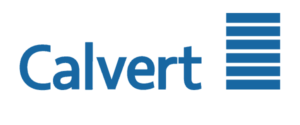
Calvert
Category: Community Investment Note
Calvert was one of the first family foundations to trade mutual funds to avoid doing business during apartheid South Africa. They officially launched their portfolio and Community Investment Note in 1995. In their own words, Calvert has made it their goal, “to serve sectors and regions that are often overlooked or underserved by the traditional capital markets.”
- Minimums: $20 for direct and Online Plan; $1000 for Brokerage Account
- Fee Types: Brokering fee for the Brokerage Account
- Products: Fixed Income Investments
- Returns: Market
Summary: Calvert has a separate mutual fund and foundation. Their foundation offers three main loan products; balance sheet loans, structured debt loans, and asset-backed facilities.
The non-profit places special emphasis on nine social impact sectors, “shaped and ever-evolving by a maturing impact investing industry and macroeconomic shifts that affect these markets.” Those impact sectors include; Affordable Housing, Community Development, Education, Environmental Sustainability, Health, Microfinance, Renewable Energy, Small Business, and Sustainable Agriculture. Calvert has a strong industry reputation, boasting a note balance of $390,870,019. They offer a return on investment in the range of 0-4%.
Conclusion: Due to its long history, Calvert has earned its place as a trusted impact investment platform. The vast majority of their loans are funded through a combination of balance sheet and structured debt loans. Overall, Calvert offers both lower and higher cost options for potential investors.

Earthfolio
Category: Robo-advisor
Earthfolio does not only bear the distinction of being the first online investment service to focus primarily on sustainable investing, but in 2015 they also launched their app. Earthfolio screens its investments against 10 ESG criteria. These stated ESG criteria include; Environment, Animal Welfare, Equality and Diversity, Non-Violence, Healthy Living, Corporate Governance, and Community Development.
- Minimums: $25 000
- Fee Types: 0.5% annual fee
- Product: ETFs, Stocks, Bonds, Mutual Funds
- Returns: Market
Summary: “Sustainability is not a niche for us,” Earthfolio states on their site, “it’s the DNA of how we’ve invested for over fifteen years. Every portfolio we build invests exclusively in a broad spectrum of sustainable mutual funds that screen on up to ten environmental, social, and governance, criteria.”
Earthfolio is a good choice for those looking for a more established platform, given that it is one of the oldest options on this list. Earthfolio caters to customers with $25,000 or more available to invest in any of their range of product offerings. Given this high minimum, Earthfolio may seem out of reach for young people looking to make an impact investment.
Conclusion: For an investor that has $25,000 or more to get started and wants a platform with a long track-record, Earthfolio offers a good set of products that is likely to fit most investors’ needs.
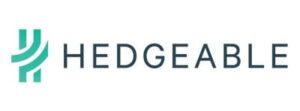
Hedgable
Category: Robo-advisor
Hedgeable is similar to the other relatively new impact investment platforms on the list. Their mission, “to democratize the market!” seems to be exemplified by their very low minimums and the unique range of SRI themes they offer. Hedgeable focuses on eight different themes for its SRI platform; U.S. Social Responsibility, International Social Responsibility, LGBTQ Equality, Low Carbon Footprint, Alternative Energy, Female Leadership, Social Fixed Income, and Water Purification and Conservation.
- Minimums: $1
- Fee Types: 0.3%- 0.75%
- Products: ETF, Mutual Funds, Equities, Commodities, etc
- Returns: Market
Summary: With the motto “Private Wealth for Everyone,” Hedgeable offers a $1 minimum for opening an account and a range of personal, retirement, and corporate accounts. To fulfill their mission statement, Hedgeable allows individuals access to portfolios with, “customized asset allocation that can include access to asset classes typically reserved for only the wealthiest investors.”
Hedgeable is considered one of the better robo-advisors in the market right now because of the services and options it provides, according to Business Insider, but Hedgeable is not great for those starting out. As Conroy demonstrates in magnifymoney.com, those with accounts under fifty thousand dollars will be charged a 0.75% fee, while those with assets under management between one to ten million dollars face a 0.3% fee.
Conclusion: Hedgeable has a lot to offer as an impact investment platform. However, if you are a potential investor just getting started, there are other platforms out there that do not charge these fees. If you are an investor with a relatively large account, Hedgeable caters to you.
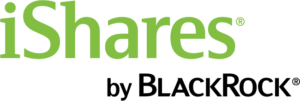
iShares
Category: Sustainable Investment Funds – ETFs
Summary: iShares is a family of exchange-traded funds managed by BlackRock. As implied by Larry Fink’s Letter to CEOs, BlackRock’s iShares platform has increasingly been placing an emphasis on its more sustainable investment offerings. The firm breaks down sustainable investing into four key categories: ESG investing, Thematic Investing, Impact Investing, and Screened Investing. iShares offers separate ETFs for each category.
Rates will vary across investment offerings and level of management.
Note: To invest in ETFs issued by iShares, you’ll need to have a brokerage account that allows you to buy and sell public equities and ETFs. There may be fees and other transaction costs associated with individual brokerage accounts.
You can learn more about iShares suite of SRI product offerings here on their website. Currently, they have around 14 unique offerings.
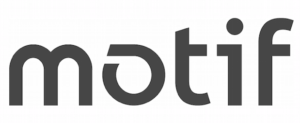
Motif
Category: Robo-advisor
Motif is a thematic investing app, meaning that they have compiled a group of stocks related based on a theme that one can invest in, as opposed to allowing investors to select individual companies or stocks. Describing thematic investing in their own words, Motif states, “We analyze data to uncover important trends driving the economy. Then we create dynamic portfolios of companies with exposure to these trends so that you can easily invest in them.” The three main investment themes in which Motif places primary focus are; Fair Labor, Sustainable Planet, and Good Corporate Behavior.
- Minimum: Depends on the package/service you choose
- Fee Types: None for Next Wave Portfolio; 0.25% annual fee for Motif Impact Portfolios; 0.5% annual fee for Motif Thematic Portfolios
- Products: Stocks, ETFs, etc
- Returns: Market
Summary: They define Motif as a, “basket of up to 30 stocks or ETFs intelligently weighted to reflect an investment theme, market insight or innovative trend.” One problem that some investors may have with Motif is the fact that dividends are not automatically reinvested. This slows down the investing process and, since it usually costs $4.95 per trade, makes the overall investing experience more expensive. Their management fee is also a cause of concern, as it is just an approximation and not the sum total of what it costs to do business with them.
Conclusion: Motif sells the idea of thematic investing because it is more comprehensive for investors who want to invest in causes rather than in single stocks. Motif has the issue of not reinvesting dividends automatically, which makes reinvesting feel cumbersome. With that said, it still gives investors the opportunity to make long term investments for issues they want to see change or transform with their investment.
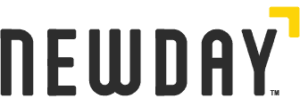
Newday
Category: Robo-advisor
Newday, launched mid 2018, is a financial technology and institutional asset management company with the mission to, “spread the power of investing with your conscience”. Their portfolio is a “custom-made, proprietary, and targeted investment strategy” where customers can benefit their choice of 6 impact areas; Gender Equality, Fresh Water, Ocean Health, Global Impact, Climate Action and Animal Welfare. Investment is possible through their mobile app.
- Minimums: $5
- Fee Types: 1% annual fee
- Products: Stocks, Custom Portfolios
- Returns: Market
Summary: Newday’s target demographic appears to be millennials as investment is strictly available via their mobile apps for IOS and Android phones, with plans to introduce a web-based platform in the near future. Customers can choose their impact, risk level and schedule recurring investments, via the app. They focus heavily on financial education with the “Learn” tab on their webpage as a key focus, regularly spotlighting companies they invest in and explaining their reasoning for said investment.
They currently offer six equity portfolios consisting of approximately 20 to 40 individual stocks, with the aim of also introducing socially responsible checking and savings accounts later this year. All of their portfolios, except Animal Welfare, were built to reflect the 17 United Nations Sustainable Development Goals. Newday also donates 5% of their revenue from asset management fees to their NGO partners who include; Conservation International, Lonely Whale Foundation, Global Fund for Women and Water.Org.
Conclusion: A Robo-advisor for millennials new to impact investing who want to learn as well as invest. The Newday platform is easy to use, transparent and affordable, allowing users to personally tailor their account according to their investment preferences and recommendations from Newday. However, Newday is still in its infancy with just over $1 million under management and is by no means a tried and tested method of investment.

OpenInvest
Category: Robo-advisor
Created in 2015, OpenInvest has a mixed approach, allowing you to compile a portfolio based on 12 different issue options. Of these, six are divestment strategies and six are investment strategies. Openinvest states that it is, “dedicated to using technology to bring honesty and transparency to financial services, while making socially responsible investing easy and more accessible.”
- Minimums: $100
- Fee Types: 0.5% annual fee
- Product: Equities, some ETFs, Bonds, Mutual Funds, Custom Portfolios
- Returns: Market
Summary: While OpenInvest offers a similar package to other new impact investment platforms on the market with regard to price, they, on the whole, take stronger political and moral stances than the other platforms on this list. They strongly value a commitment to the political stances they take and have admitted to, “frequently turning away customers who are not ready to invest or whose needs are met elsewhere.” They offer a new technology that allows members to proxy vote via their app, which may be appealing to some investors.
If your political beliefs align with OpenInvest, then you will probably love the platform. If they don’t, however, you might want to look elsewhere. They’ve recently received venture funding from a large group of respected investors, which may mean they’ll expand their product offerings in the near future.
Conclusion: For an impact investor who truly identifies with their message and political stances, OpenInvest is a good option. If you want to ease your entry into impact investing, there are other options that don’t require such a minimum investment or the support of their strong political positions.

Personal Capital
Category: Robo-advisor, Account Aggregator
Personal Capital is a personal wealth management system that is focused on making investing simple even for a wide range of investor risk profiles. Within its portfolio of services, Socially Responsible Investing (SRI) is a key part of the firm’s offerings. By partnering with Sustainalytics, a global leader in ESG research and ratings, Personal Capital is able to help users curate stock portfolios that meet their individual impact preferences.
Summary: Personal Capital encourages companies to connect all their financial accounts to get a “complete financial picture.” They then encourage customers to connect with an in-house financial advisor to create a retirement plan. Taking a hybrid approach, Personal Capital claims to “combine award-winning technology and financial tools with experienced people to create the smart, easy way to transform your financial future.”
Fee structures as of November 2019 are:
- First $1 million: 0.89%
- First $3 million: 0.79%
- Next $2 million: 0.69%
- Next $5 million: 0.59%
- Over $10 million: 0.49%
Conclusion: If you’re looking to streamline the management of your finances and want help from a professional advisor managing your money Personal Capital may provide the right mix of human and technological touches. Their fees are competitive and they offer a suite of free tools to help educate and convert clients.
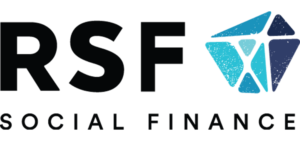
RSF Social Finance
Category: Social Investment & Donor Advised Funds
RSF Social Finance offers a diverse range of funds and makes a point to promote transparency as a key feature of their investment model, “We believe that inquiry and dialogue are essential to transforming people’s relationship with money and moving the economy toward greater equity.” RSF Social Finance organizes quarterly “community price gatherings,” where investors and borrowers have a chance to meet and where quarterly interest rates are decided, in addition to “Shared Gifting Circles,” which “give participants distribution and allocation authority over grant funds.”
- Minimums: $1000 for Social Investment Fund; $100 000 for Regenerative Economy and Food System Transformation Funds
- Fee Types: N/A for Social Investment Fund; 0.6% annualized Investment Fee in addition to a 0.75% – 1.25% annualized “Community Contribution” for Donor Advised Funds
- Product: Various Specialty Funds
- Returns: 1.25% (decided quarterly) for the Social Investment Fund; 1% annualized for the Regenerative Economy and Food System Transformation Funds
Summary: RSF Social Finance offers various fund options. The Social Investment Fund provides direct investment into social enterprises in the fields of climate & the environment, education & the arts, and food & agriculture. Meanwhile, the assets held in the Donor Advised Funds are kept in a, “mission-aligned investment portfolio, which seeks safe and liquid cash opportunities that achieve deep impact.”
RSF Social Finance have claimed a 100% repayment rate of principal plus interest to investors in every year since its 1984 inception. With that said, the 1.25% return for the Social Investment Fund has only begun for the 2019 calendar year, previously hovering between 0.75% to 1.00%. The relatively high minimums for the funds are offset by minimum-free gifting options like Money to Transform, Shared Gifting and their Seed Fund.
Conclusion: Their giving options are all designed to give individuals who believe in the same mission the chance to put their own money towards the value-driven organizations and entrepreneurs identified by RSF. Overall, their diverse product offering, long track-record, and above-average transparency makes it a worthy option on this list.

Stash
Category: Robo-advisor
Stash explains that their core mission is making financial opportunity and literacy available to everyone. Their focus is on making investing as simple as possible, with younger investors serving as their target clientele. They encourage their users to, “Think big, start small” and offer custodial investment accounts for those under 18 years of age. The main investment themes on their platform are; Clean Energy, Reduction of Carbon Footprint, LGBTQ Rights, Gender Equality, Water Conservation, and other ESG focused companies.
- Minimum: $5 upfront for Investment Account; $15 minimum for Retirement Account
- Fee Types: $1 per month for under $5000, 0.25% fee annually for over $5000 for Investment Account; $2 per month fee for Retirement Account
- Products: ETFs, Bonds, Commodities, Banking, etc
- Returns: Market
Summary: Stash offers packages like “The Activist” or “The Techie.” It is similar to peers in the space, offering a variety of ways to make investing, especially with regard to SRIs, accessible. They are a thematic investment option that allows investors to invest in theme-based ETFs. There are 33 ETFs options on the app. Stash also allows you to buy fractional shares, usually reinvesting in individual stocks or in one of their other themed ETFs.
Stash works well for beginners because it offers guidance and teaches basic terminology, but it may come at a cost. According to both College Investor and Nerdwallet, investing in Stash is more expensive because of the $1 per month fee which eats into your return as opposed to just investing directly in an ETF.
Conclusion: Stash sought a way to make investing easier and less intimidating. In the end, it faces similar issues that other ESG platforms encounter. If you are an experienced investor looking for an app to use for a long time, it might be better to look elsewhere. With that said, Stash is still a decent option for novice investors who are just starting out and want to make a difference with their money.

Street Shares
Category: Peer-to-peer Lending Service
Streetshares is a peer to peer lending service that offers business loans to small businesses and those owned by veterans and current members of the United States Armed Forces. Their mission is to, “Bring trusted digital finance to America’s heroes.” While their website prominently features their commitment to supporting the military and veterans, one doesn’t have to be a military member to apply for a loan from Streetshares or invest in the loans they offer.
- Minimum: $25
- Fee Types: N/A
- Products: Veteran Business Bonds
- Returns: Up to 5% interest
Summary: Streetshares offers 3- 36 month terms for financing and lines of credit as low as $2000. As opposed to other funding and lending services, Streetshares offers relaxed borrowing qualifications as well as forgoing an application fee which is different from other community lending services. The most anyone can invest on Streetshares is $500,000, and the minimum is $25 for their Veteran Business Bonds. People start receiving interest within 2-5 days as well as receiving funds within 3-7 days.
Conclusion: For those interested in peer-to-peer lending and supporting former service members, Streetshares is a solid choice. It is a dynamic platform for those wanting to invest in a place supporting veterans with a broad yet set list of investing options.

Wealthsimple
Category: Robo-advisor
Wealthsimple, Canada’s largest robo advisor, gives customers the option of, “investing on autopilot” through a variety of asset classes, tax loss harvesting, and even offers to manage your first $5000 for free. It also offers a halal investing option for investors who follow and practice Islamic law. It puts a lot of its ESG investing focus on investing in low cost ETFs.
- Minimums: None
- Fee Types: 0.4%- 0.5%
- Product: ETFs
- Returns: Market
Summary: “Put your money on autopilot!” is an easy slogan to get behind but can often become a dangerous notion to apply, as many critics have noted regarding Wealthsimple’s investment strategy and product offerings. Fees depend upon the amount of money you store in your account, as accounts lower than $100,000 incur an annual fee of 0.5% as compared to the 0.4% fee that accounts with more than $100,000 face.
The main criticism lobbed at Wealthsimple, however, is that it has a conflict of interest in investing in PDF and PHR, which are owned by Som Seif, a board member of Wealthsimple. Both these ETFs don’t trade at the same volume and are not near the price range as the other ETFs on the list, which raises questions as to why they are included in its investment offerings.
Conclusion: How they use their platform to please their customers will always be a question that lingers for Wealthsimple. Beyond acting as an impact investment platform, they have one billion dollars under their tutelage and are invested in ETFs committed towards low carbon emissions, clean technology, gender diversity, affordable housing, and sustainable growth. At the very least, Wealthsimple serves as an example as to how ESG investing can be a complicated enterprise for everyone involved.

Wunder
Category: Specialized Solar Project Investments
The Wunder Group is a fintech company founded in 2013 in Boulder, Colorado. Its parent company, the Wunder Group, uses venture capital to help fund the solar projects that WunderCapital promotes. Its motto is to, “Do well and do good,” presumably by investing in solar projects through their curated solar energy portfolios.
- Minimums: $1000
- Fees: 0.25%
- Product: Solar Energy Funds
- Returns: Depending on the fund, between 6%- 7.5%
Summary: WunderCapital manages solar energy investments and construction for solar energy projects. WunderCapital has a singular goal in mind in prompting solar energy projects and because of this, WunderCapital lacks diversity, leaving it subject to a precarious sector of environmental investing. On top of that, one must be an accredited investor in order to invest in WunderCapital.
Conclusion: WunderCapital has a relatively high minimum compared to other options on this list, but a 0.25% annual fee is hardly unreasonable when all is said and done. If you are an accredited investor and are specifically interested in investing in the solar energy space, WunderCapital could be the right option for you.
Conclusion
We hope that this list provides you with a better idea of the various retail impact investment options available today. Before pursuing this line of investing, it is important to note that pooled equities or ETFs may contain stocks that contradict your overarching investment goals. For example, the gender diversity ETF, SHE, holds shares in ConocoPhillips and Occidental Petroleum Corporation, among others, which might be at odds with an overall portfolio strategy targeting renewable energy sources. Be sure you do your own research before you commit to any of the platforms on this list. It’s often useful to dig a bit to find out the true level of impact and rigor around portfolio construction associated with any investment option you choose.
As the industry matures, impact investing space will need to address these kinds of issues, but there is hope for socially conscious investors. The diversity of impact investing options on this list speaks to the market demand of investors that value social and financial returns. According to Christopher Skroupa in the Forbes article In ESG We Trust — The Risk And Rewards Of ESG Investing, “… impact investing has grown 97% in the past decade.” We believe that this trend will only continue in the years to come, and we hope that you too will soon be part of it
Given the negative impressions people typically have of the financial services industry, a lot of these platforms are making a concerted effort to make themselves accessible, including CNote. As this space continues to grow, one can only hope to see the clear impact that these businesses and platforms provide to society as a whole. We hope this list helps you find solutions that allow you to align your investments with your values.
